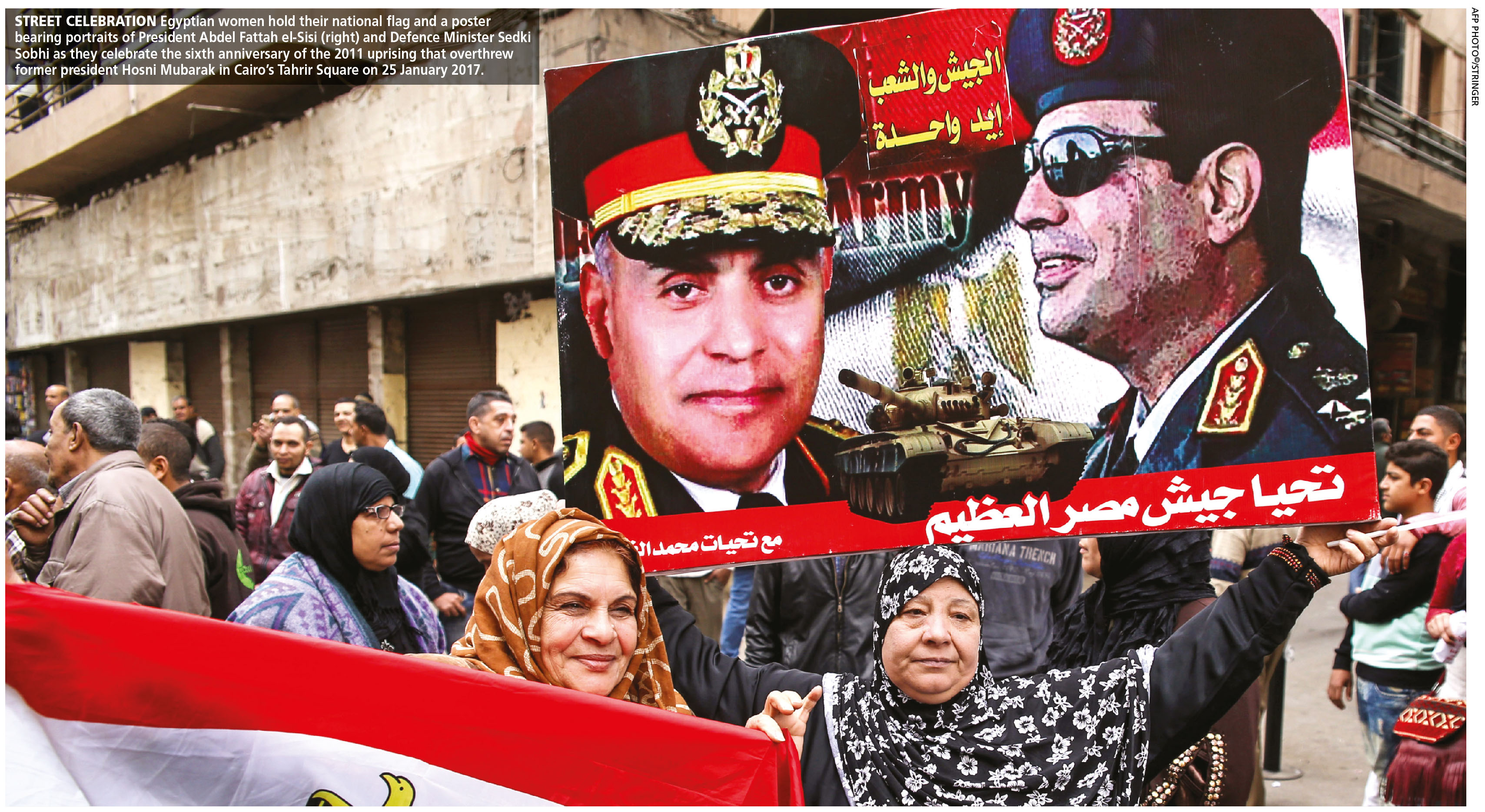CORRUPTION REDUX
WHERE BRIBERY THRIVES
Leadership changes in Egypt make little difference to corruption in public service – Rajika Jayatilake reports
It’s so easy to make people believe what you would have them believe. As the founding father and third President of the US Thomas Jefferson once said, “educate and inform the whole mass of the people… They are the only sure reliance for the preservation of our liberty.”
These words of wisdom are applicable to the global community as a whole.
In the Arab Spring of 2011, the Egyptian people removed President Hosni Mubarak from power after 18 days of demonstrating against him. There was widespread anger over graft, cronyism and nepotism in the Mubarak regime, which helped fuel the uprising. But although Mubarak was removed, corruption continues to plague Egypt.
Corruption in Egypt goes back to President Gamal Abdel Nasser who led a revolutionary movement in the 1950s to topple a corrupt monarchy… and then established a dictatorship where corruption became rampant.
It went from bad to worse under Nasser’s successors Anwar Sadat and Mubarak himself, who after liberalising the economy provided many opportunities for those close to power to accumulate substantial sums of illegal money.
However, removing Mubarak didn’t stop corruption. High and low-level officials fraudulently earned money and became rich across a sprawling bureaucracy. Many Egyptians complained that they had to pay bribes to receive public services, and donors were concerned that corruption prevented foreign investment and economic development.
Egypt’s current leader Abdel Fattah el-Sisi says fighting corruption in society is a priority. He grabbed power after ousting the only freely elected President of Egypt Mohamed Morsi of the Muslim Brotherhood in a coup in 2013.
El-Sisi became president in 2014 and said that under his leadership, Egypt finally had “real political will to eliminate corruption.” Subsequently, his government promised the IMF that bureaucratic transparency and accountability would be a main pillar ahead of the disbursement of a US$ 10 billion financial assistance package. Several dozen officials have since been arrested for corruption, and the government has won international applause and more donor assistance.
And with the installation of a new government in 2014, a new constitution was voted in by an overwhelming majority. The government realised that it was duty-bound to fight corruption in the public sector and did so in several ways. It froze hiring until employment rates reached the required numbers in the public sector.
Existing employees were trained to make them more productive and qualified, and unqualified employees were removed from leadership roles. The basis for promotion became performance rather than seniority and job assessments were carried out more frequently to promote skilled candidates. People were encouraged to use online services to reduce interaction between public service officials and the public, and thereby reduce opportunities to demand bribes.
Apart from these rules, the period of probation for new hires was extended to six months with the right to terminate unqualified candidates by merely giving them notice. Even after an employee is made permanent, if he or she obtains two consecutive weak performance reports, the worker could be transferred to another position and deprived of 50 percent of his or her salary, or even be terminated.
Yet, despite the safeguards, those who are inclined to demand bribes will somehow do so. Recently, the head of Egypt’s tax authority Abdul Azim Hussein was arrested for receiving bribes from accountants as announced by the Public Prosecution Office. Following the arrest, the Ministry of Finance said: “There is no one above the law and there can be no covering up of corruption.”
Meanwhile, el-Sisi – who vowed to fight corruption in the country – arrested several state officials including a former governor. In 2017, former agriculture minister Salah Helal was sentenced to 10 years in prison for taking bribes.
However, el-Sisi himself is now embroiled in a scandal over allegations of corruption. Late in 2018, a whistleblower who worked as a military contractor for 15 years spoke out about how the government, el-Sisi’s family and his inner circle squandered public funds.
As one would expect, the government has gone to great lengths to silence critics of the regime including those highlighting corruption. In 2018, the former head of the Central Auditing Authority (CAA) Hisham Geneina was sentenced to five years in prison on charges of “publishing false information for harming national security.”
Geneina was responsible for overseeing public spending and writing reports on how public money is spent. He was sacked after exposing widespread government corruption and accused of misrepresenting facts about state corruption.
Transparency International (TI) has warned of the human rights consequences of political corruption, which it says is a major problem in Egypt. TI says: “Corruption in the country’s law enforcement agencies severely undermines the rule of law.”
As former US President Franklin D. Roosevelt once declared, “in politics nothing happens by accident. If it happens, you can bet it was planned that way.”




